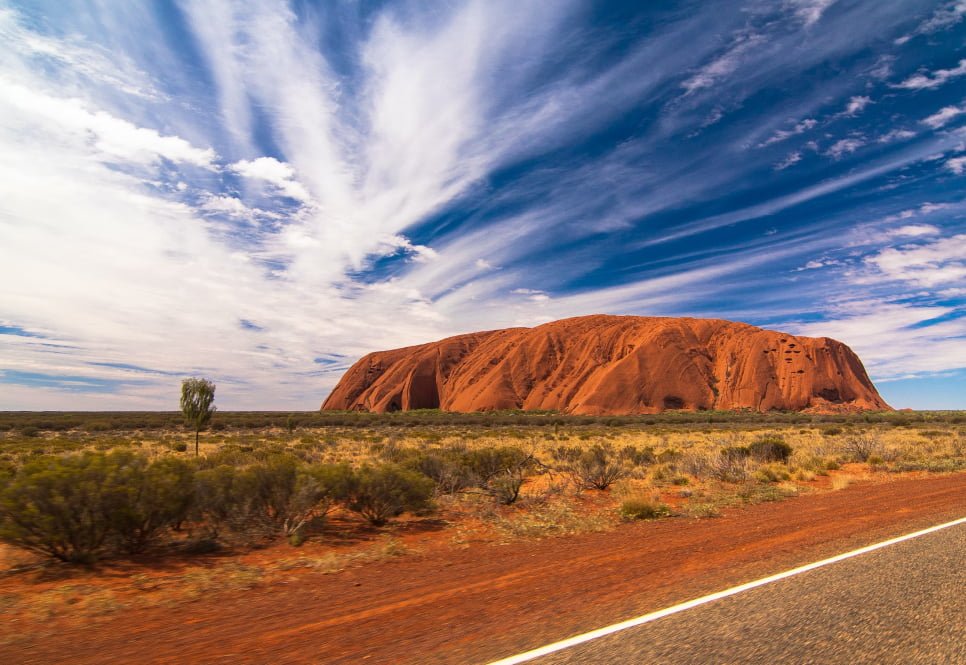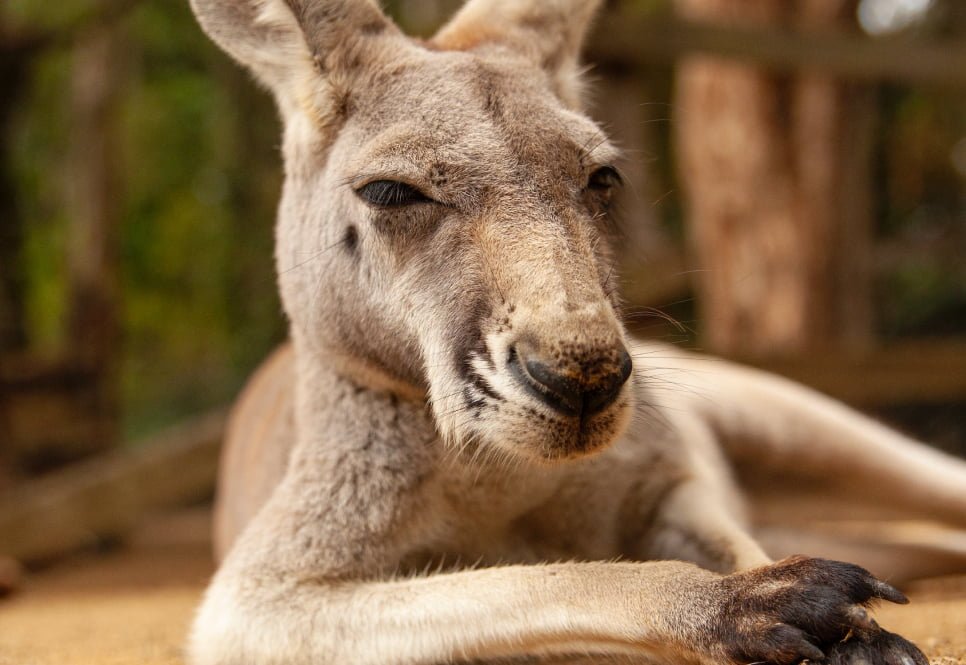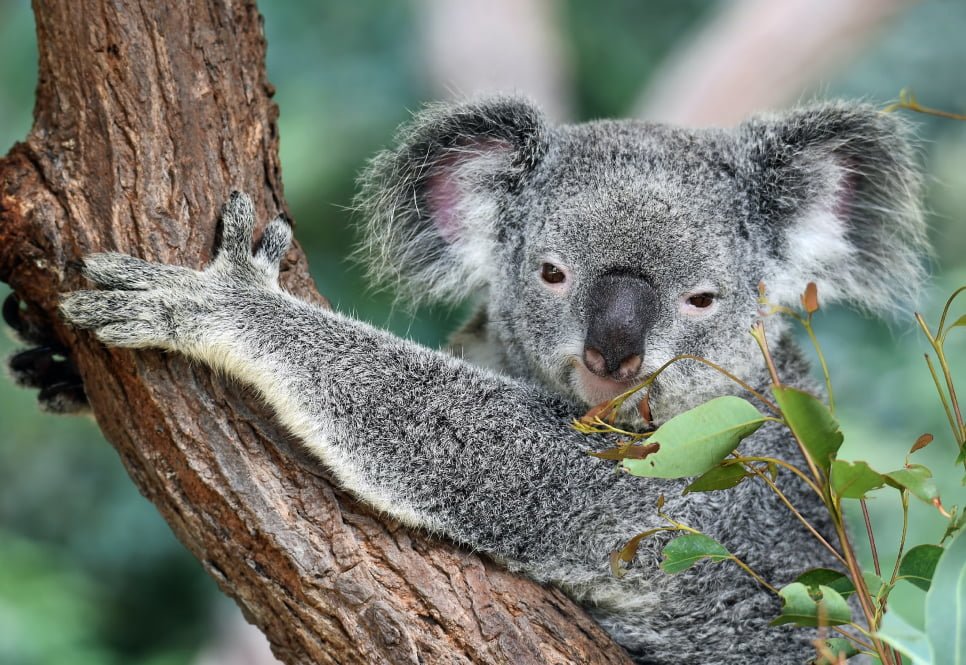Study in Australia
Known for its natural wonders, multicultural society and great lifestyle, Australia is a fantastic place in which to live, study and develop the skills you need to work both within Australia and internationally.

Australian lifestyle and culture
Australia is famous for its scenic beauty, spectacular beaches and warm weather, so it's no wonder that the Australian lifestyle is outdoors and relaxed. Society is multicultural and its people expect to be treated equally.
Australian people
Australians are friendly people and quite informal. Don’t forget different countries have different customs. We say 'please' and 'thank you' a lot, and always say 'excuse me' when we talk to a stranger or to someone who is busy. It is okay to shake hands when you meet someone - or just smile and say 'How are you?' Australians use first names a lot, but with older people wait until they ask you. Call them 'Mr Smith' or 'Mrs Smith' or by their first name if they ask you.
Clothing
Layered outfits are the most practical clothing for Australian conditions. A waterproof jacket is useful but, even in mid-winter, an overcoat is not often necessary in Sydney. Australian dress is generally casual by international standards.
Photo Gallery
Money in Australia
Australia uses a dollars and cents system of decimal currency with 100 cents in a dollar. The bank notes in use are $5, $10, $20, $50 and $100. Coins used are the silver coloured 5 cent, 10 cent, 20 cent and 50 cent and the gold coloured $1 and $2 coins.
Australian currency is the only legal tender in Australia.
Cost of living in Australia
The average international student in Australia spends about $405 per week on living expenses including:
- Accommodation
- Food
- Clothing
- Entertainment
- Transport
- International and domestic travel
- Telephone
- Incidental costs
While this is a realistic guide, it is important to remember that individual circumstances will vary by location, course and lifestyle. When you are structuring your budget also take into account the following:
- Tuition fees
- Health insurance
- Working while you study
The approximate weekly cost of accommodation for a typical student ranges from $150 to $300 per week.
The approximate weekly cost of food for a typical student ranges from $50 to $150 per week.
The approximate weekly cost of accommodation for a typical student ranges from $10 to $50 per week.
The approximate weekly cost of phone and internet for a typical student ranges from $20 to $75 per week.
The internet is freely available at our campuses!
Using and earning money
When you first arrive, money from other countries can be changed at the exchange facilities located at international airports, banks and major hotels.
Travellers cheques are easier to use if already in Australian dollars, however, banks will cash travellers cheques in virtually any currency. Major hotels and some shops, depending on individual store policy, will cash travellers cheques.
You can also withdraw money from some overseas bank accounts at Automatic Teller Machines (ATM) facilities, which can be found in shopping centres and CBD areas.
It is a good idea to set up an Australian bank account. You will need to provide your visa and evidence of residency.
Banking services in Australia are extremely competitive. Over 20 local and numerous international banking groups are represented in Australia. All major banks have a branch in cities and regional centres.
Most shopping centres have Automatic Teller Machines (ATM) facilities. These machines can be used for deposits and, in many instances, withdrawals 24 hours a day. Many department stores, supermarkets and specialist shops have electronic transfer terminals (EFTPOS) where cash withdrawals can also be made in addition to purchasing goods.
Most bank accounts come with a debit card which can be used to make payments in stores and withdrawals at ATMs.
Credit cards are also widely accepted around Australia. The most commonly accepted credit cards are American Express, Bankcard, Diners International, MasterCard, Visa and their affiliates.,
If you want to work while you study in Australia, you need to understand your rights and responsibilities to ensure you protect yourself and comply with your visa requirements.
The number of hours you can work on a Student Visa can be subject to change. You can check the latest rules on the Australian Government's Immigration website for Student Visas (subclass 500) and other types of visas.
Australia has strict rules about paying tax and superannuation (retirement savings) when you are working.
Learn more on the Study Australia website.
Tipping is not the general custom in Australia and service charges are not added to accounts by hotels and restaurants. In better-class restaurants, it is usual to tip food and drink waiters up to 10 per cent of the bill for good service. Porters have set charges at railway terminals, but not at hotels. However, at any time, tipping is a matter of individual choice.
This information has been sourced from the Study Australia website.
Transportation
Public transport options available in Australia include buses, trains, trams and ferries. Using public transport requires a travel card, which are different in each city. All of the APC and EU campuses are within walking distance of train stations and bus stops.
You can also drive yourself and to do this you may need to apply for a drivers license in the Australian state you plan to live and study in.
To travel by public transport you will need to purchase a travel card. This has a different name in each city. Sydney has an Opal card, Brisbane and Gold Coast have a Go card and Melbourne has a Myki card.
You can add credit to these cards and then you don’t have to worry about not having enough cash to catch public transport. All can have extra credit added to them online or through a retail outlet. Just remember to tap on and tap off.
Getting to and from the airport in each city has many options from a taxi, train, rideshare, shuttle bus or council bus.
In Sydney and Brisbane catch the airport train line, in Melbourne, you can catch the Skybus and on the Gold Coast there is a shuttle bus service (Gold Coast Shuttle).
Taxi services are also available, but they are expensive in comparison with other forms of public transport.
If you hold a current drivers licence in your home country, you might be able to drive in Australia without sitting for any further driving tests. But remember that many state and territory governments require you to get an Australian drivers licence if you are here for more than three months.
Find out more on the Study Australia website.
Phone and internet
Australia has many phone and internet services available, including fixed (landline) phones, mobile and internet.
Using your home mobile phone will be expensive, so it is best to organise an Australian mobile number or SIM card when you arrive. Many mobile phone service providers also offer home internet services.
It is best to purchase a SIM card or Australian mobile number when you arrive in Australia, as using your home phone number will incur high costs. There are two types of mobile phone accounts you can choose from:
- Prepaid
- Contract
Learn more on the Study Australia website.
Many internet providers in Australia are also mobile or fixed phone carriers, and they offer pre-paid or contract internet plans similar to the above. If you choose a contract service, you will receive a modem, and pay each month for a certain data allowance. Ask the providers you are considering for details of plans that might suit you.
This information is provided courtesy of the Study Australia website.
To make international telephone calls from Australia, dial 0011 followed by the country code, the area code (if required) and the telephone number. To call Australia from overseas, dial 61 followed by the area code and telephone number. To make calls from one location to another within Australia, dial the area code (if required) followed by the telephone number.
This information is provided courtesy of the Study Australia website.
Safety, policing and justice
Australia is considered to be one of the safest countries in the world, with a stable political system and a low crime rate, and Australians generally experience a safe lifestyle. However, like in all countries/major cities, undue risks should not be taken. For example, avoid poorly-lit areas at night time and take care of your valuables and belongings at all times.
Public transport is reliable and widely used in Australia, particularly in metro and urban areas. A number of security measures have been implemented to maximise the safety of public transport users including security officers and guards, help points, good lighting and security cameras. However you should still use caution when travelling on public transport.
If you are not familiar with the city you are living in or if you must travel at night, travel with a friend. Also do not accept a ride in a car from someone you do not know, even if they seem friendly or helpful.
The Study Australia website has some excellent tips for keeping yourself safe on public transport, when going out and on campus.
Australia is known for its warm climate and beautiful beaches, but it is important to stay safe when outdoors or in the water.
Learn more about how to enjoy the sun and water safely on the Study Australia website.
Australia is famous for its unique animals, some of which you might prefer to avoid, while others are a treat to meet. A good rule of thumb is to always follow advisory signs and don’t approach unfamiliar animals.
Find out more on the Visit Australia website.
The Australian Federal Police (AFP) is Australia's national police agency. There are also police agencies in each state or territory.
Karla's Story
Let me take you on my APC journey. I have so many things I want to experience and achieve in my life, like make art, explore, travel the world, try new things, conquer my fears, meet people, connect, learn, and the list goes on.
And so I embarked myself on a journey taking Marketing and Communications at APC. This chapter of my life has helped me to learn more, showcase my talents and skills, share my thoughts and creative ideas.




